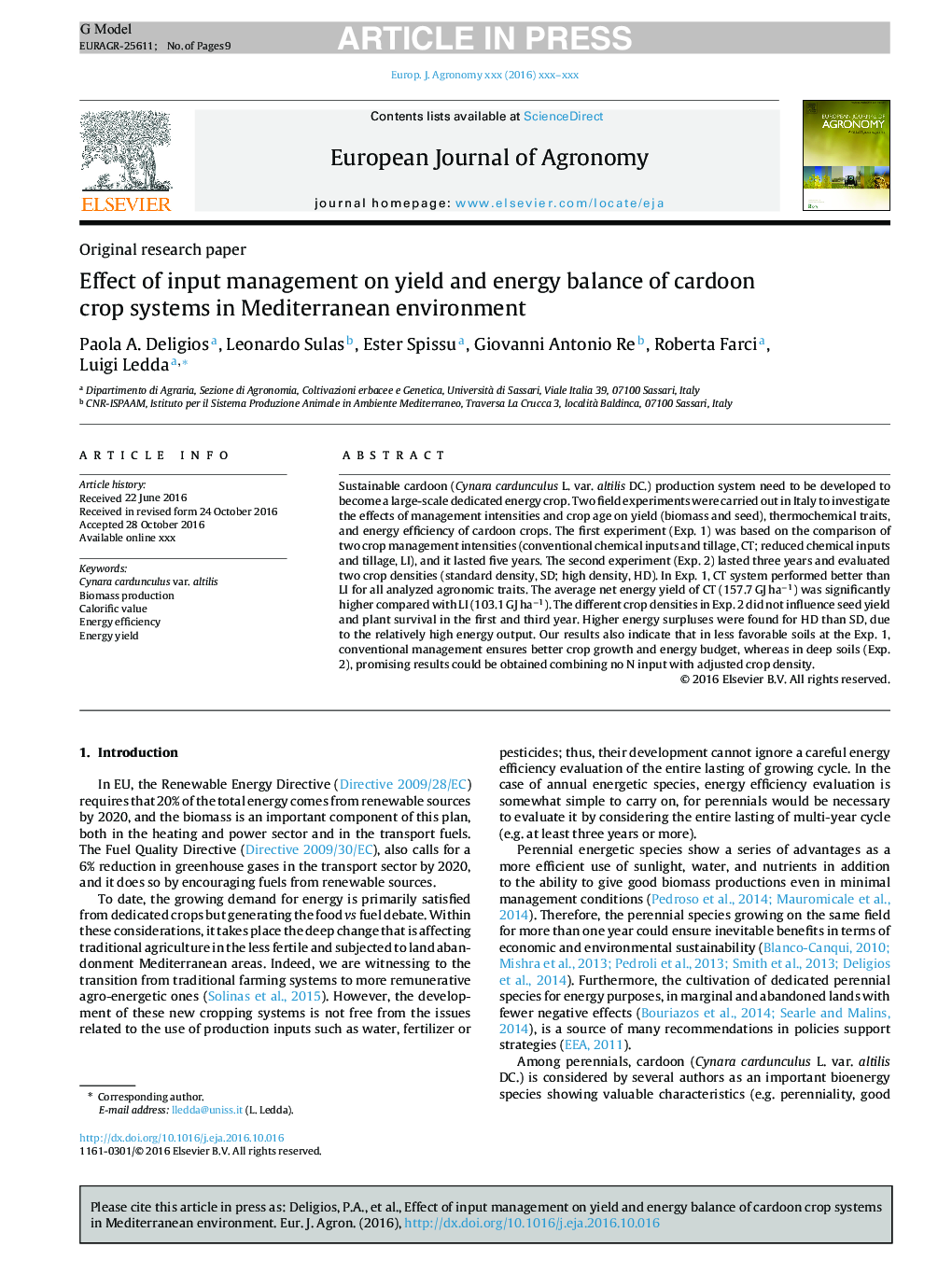| Article ID | Journal | Published Year | Pages | File Type |
|---|---|---|---|---|
| 5761335 | European Journal of Agronomy | 2017 | 9 Pages |
Abstract
Sustainable cardoon (Cynara cardunculus L. var. altilis DC.) production system need to be developed to become a large-scale dedicated energy crop. Two field experiments were carried out in Italy to investigate the effects of management intensities and crop age on yield (biomass and seed), thermochemical traits, and energy efficiency of cardoon crops. The first experiment (Exp. 1) was based on the comparison of two crop management intensities (conventional chemical inputs and tillage, CT; reduced chemical inputs and tillage, LI), and it lasted five years. The second experiment (Exp. 2) lasted three years and evaluated two crop densities (standard density, SD; high density, HD). In Exp. 1, CT system performed better than LI for all analyzed agronomic traits. The average net energy yield of CT (157.7Â GJÂ haâ1) was significantly higher compared with LI (103.1Â GJÂ haâ1). The different crop densities in Exp. 2 did not influence seed yield and plant survival in the first and third year. Higher energy surpluses were found for HD than SD, due to the relatively high energy output. Our results also indicate that in less favorable soils at the Exp. 1, conventional management ensures better crop growth and energy budget, whereas in deep soils (Exp. 2), promising results could be obtained combining no N input with adjusted crop density.
Related Topics
Life Sciences
Agricultural and Biological Sciences
Agronomy and Crop Science
Authors
Paola A. Deligios, Leonardo Sulas, Ester Spissu, Giovanni Antonio Re, Roberta Farci, Luigi Ledda,
